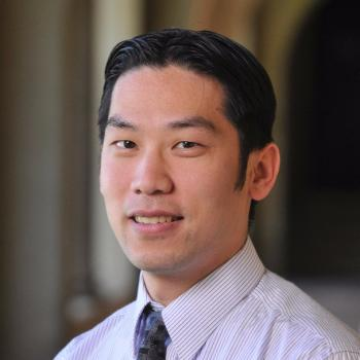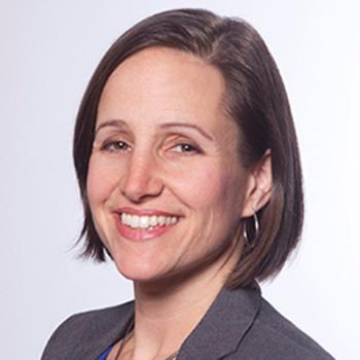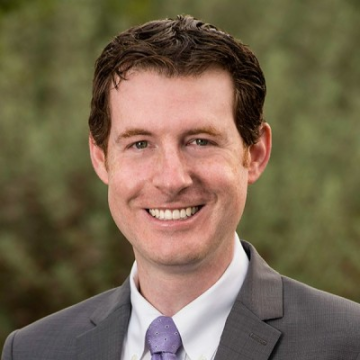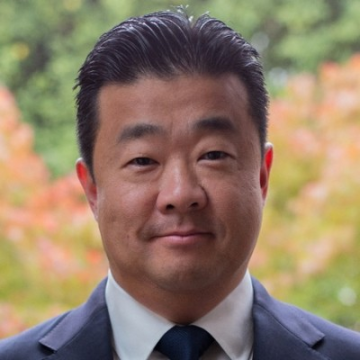Additional Faculty for Safe, Ethical, and Cost-Effective Use of AI in Healthcare: Critical Topics for Senior Leadership

Akshay Chaudhari
Dr. Chaudhari is an Assistant Professor of research in the Integrative Biomedical Imaging Informatics at Stanford (IBIIS) section in the Department of Radiology and (by courtesy) in the Department of Biomedical Data Science. He leads the Machine Intelligence in Medical Imaging research group at Stanford and has a primary research interest that lies at the intersection of artificial intelligence and medical imaging. He graduated with honors from UCSD with a B.S. in Bioengineering in 2012. Following this he completed his Ph.D. from Stanford University’s Department of Bioengineering in 2017, focusing on novel MRI methods for musculoskeletal imaging; supported through the National Science Foundation Graduate Research Fellowship, the Whitaker Fellowship, and the Siebel Fellowship. After his PhD, he trained as a postdoctoral fellow in Radiology at Stanford University, where he combined machine learning with medical imaging acquisition and analysis. Dr. Chaudhari has won many awards, including the W.S. Moore Young Investigator Award, the Junior Fellow Award, and an Outstanding Teacher Award from the International Society for Magnetic Resonance in Medicine. He has 6 additional young investigator awards for his work on advanced musculoskeletal medical imaging. Dr. Chaudhari is the Associate Director of Research and Education at the Stanford AIMI Center and is an internal advisory board member of the Precision Health and Integrated Diagnostics Center.

Jonathan Chen
Jonathan H Chen MD, PhD is a physician-scientist with professional software development experience and graduate training in computer science. He continues to practice Internal Medicine for the concrete rewards of caring for real people and to inspire his research focused on mining clinical data sources to inform medical decision making. In the face of ever escalating complexity in medicine, integrating informatics solutions is the only credible approach to systematically address challenges in healthcare. Tapping into real-world clinical data streams like electronic medical records with machine learning and data analytics will reveal the community's latent knowledge in a reproducible form. Delivering this back to clinicians, patients, and healthcare systems as clinical decision support will uniquely close the loop on a continuously learning health system. Dr. Chen's group seeks to empower individuals with the collective experience of the many, combining human and artificial intelligence approaches to medicine that will deliver better care than what either can do alone.

Tina Hernandez-Boussard
Dr. Hernandez-Boussard is an Associate Professor at Stanford University in Medicine (Biomedical Informatics), Biomedical Data Sciences, Surgery and Epidemiology & Population Health (by courtesy). Her background and expertise are in the field of biomedical informatics, health services research, and epidemiology. In her current work, Dr. Hernandez-Boussard develops and evaluates AI technology to accurately and efficiently monitor, measure, and predict healthcare outcomes. She has developed the infrastructure to efficiently capture heterogenous data sources, transform these diverse data to knowledge, and use this knowledge to improve patient outcomes, healthcare delivery, and guide policy.

Matthew Lungren
Matt Lungren is Principal for Clinical AI/ML at Amazon Web Services in World Wide Public Sector Healthcare. He also holds affiliate positions with UCSF, Duke, and Stanford University. Prior to joining AWS, Dr Lungren was an interventional radiologist and research faculty at Stanford Medical School where he co-led the Stanford Center for Artificial Intelligence in Medicine and Imaging (AIMI). He served as advisor for dozens of early stage startups and large fortune-500 companies on healthcare AI go-to-market strategy. His work has led to more than 100 scientific publications, including work on multi-modal data fusion models for healthcare applications, new computer vision and natural language processing approaches for healthcare specific domains, opportunistic screening with machine learning for public health applications, open medical data as public good, and prospective clinical trials for clinical AI translation. He is also a top rated instructor on Coursera where his course Fundamentals of Machine Learning in Healthcare, designed especially for learners with clinical non-technical backgrounds, has been completed by more than 10k students around the world.

Michelle Mello
Michelle Mello is Professor of Law at Stanford Law School and Professor of Health Policy in the Department of Health Policy at Stanford University School of Medicine. She conducts empirical research into issues at the intersection of law, ethics, and health policy. She is the author of more than 200 articles on medical liability, public health law, the public health response to COVID-19, pharmaceuticals and vaccines, biomedical research ethics and governance, health information privacy, and other topics. The recipient of a number of awards for her research, Dr. Mello was elected to the National Academy of Medicine at the age of 40. From 2000 to 2014, she was a professor at the Harvard School of Public Health, where she directed the School’s Program in Law and Public Health. Dr. Mello teaches courses in torts, public health law, and health policy. She holds a J.D. from the Yale Law School, a Ph.D. in Health Policy and Administration from the University of North Carolina at Chapel Hill, an M.Phil. from Oxford University, where she was a Marshall Scholar, and a B.A. from Stanford University.

Natalie Pageler
Dr. Natalie Pageler is a board-certified pediatric intensivist and board-certified clinical informaticist. She is Chief Medical Information Officer of Stanford Children’s Health, Associate Program Director for the Stanford Clinical Informatics Fellowship, and an Associate Professor of Pediatric Critical Care at Stanford University School of Medicine. Dr. Pageler also holds a master’s degree in medical education, and focused her thesis project on the impact of computerized clinical decision support tools on clinician’s knowledge, behaviors and attitudes. Through her clinical and administrative positions, she has spearheaded the development of the Stanford Children’s Digital Health Program, helped implement novel programs and tools to enhance provider efficiency and practice experience, and has developed innovative computerized clinical decision support tools to provide point-of-care education to clinicians and enhance quality of care, efficiency, and patient safety. Dr. Pageler has also been active in shaping the curriculum for the emerging specialty of clinical informatics. She co-authored an article in the Journal of the American Medical Association outlining the steps for integrating clinical informatics into the traditional medical education curriculum, co-authored a publication in JAMIA outlining the experience of the first four ACGME-accredited clinical informatics fellowships, and serves as Chair Elect for the national Community of Clinical Informatics Program Directors.

Michael Pfeffer
Michael A. Pfeffer, MD, FACP serves as Chief Information Officer and Associate Dean for Stanford Health Care and Stanford University School of Medicine. Michael oversees Technology and Digital Solutions (TDS), responsible for providing world class technology solutions to Stanford Health Care and School of Medicine, enabling new opportunities for groundbreaking research, teaching, and compassionate care across two hospitals and over 150 clinics. TDS supports Stanford Medicine’s mission to improve human health through discovery and care and strategic priorities to be value focused, digitally driven, and uniquely Stanford. Michael is a Clinical Professor in the Department of Medicine and Division of Hospital Medicine with a joint appointment in the center for Biomedical Research (BMIR) in Stanford University School of Medicine. As such, Michael continues to provide clinical care as a Hospitalist Physician as well as teaching medical students and residents on the medicine inpatient wards.

Kevin Schulman
Dr. Schulman was appointed as Professor of Medicine, Associate Chair of Business Development and Strategy in the Department of Medicine, Director of Industry Partnerships and Education for the Clinical Excellence Research Center (CERC) at the Stanford University School of Medicine, and, by courtesy, Professor of Economics at Stanford’s Graduate School of Business in June, 2018. Dr. Schulman is a Professor of Medicine, Clinical Excellence Research Center (CERC) at the Stanford University School of Medicine, and, by courtesy, Professor of Operations, Information and Technology at Stanford’s Graduate School of Business. Dr. Schulman’s research interests include organizational innovation in health care, health care policy and health economics. With over 300 original articles, over 100 review articles/commentaries, and over 40 case studies/book chapters, Kevin Schulman has had a broad impact on health policy (h-index = 77). His peer-reviewed articles have appeared in the New England Journal of Medicine, JAMA, and Annals of Internal Medicine. He is a member of the editorial/advisory boards of the American Heart Journal, Health Policy, Management and Innovation (www.HMPI.Org), and Senior Associate Editor of Health Services Research.

Christopher (Topher) Sharp
Dr. Sharp serves as the Chief Medical Information Officer at Stanford Health Care, where he is a physician leader in the application of innovative clinical technologies for the delivery of care. Dr. Sharp has responsibility to assure that clinical information systems work well for clinicians – and that clinicians are proficient and effective in their use of these systems in the care of their patients. He is accountable for driving the clinical strategy, design, enhancement, usability, adoption, and workflow integration of clinical information systems and digital health for Stanford Health Care. As Clinical Professor in the Department of Medicine, Dr. Sharp maintains an active primary care and inpatient practice. He has published multiple academic articles on the impacts of clinical informatics in safety, outcomes, and clinician wellness. Dr. Sharp serves as a mentor and educator for Stanford Clinical Informatics Fellows, junior faculty, and other trainees.

Tip Kim

Nina Kottler
Nina Kottler, MD, MS is a radiologist with over 16 years of experience in emergency radiology. With a background in applied mathematics and optimization theory, she has been using imaging informatics to improve quality and drive value in radiology. Dr. Kottler is the associate CMO for Clinical AI and VP of Clinical Operations at Radiology Partners (RP). She leads RP's Data Science and Analytics division and oversees clinical AI for the practice. She also developed and works in Radiology Partners’ remote imaging division, Matrix, and serves internally on their AI, IT, and Leadership and Culture support boards and their Belonging Council. Externally Dr. Kottler chaired the Population Subcommittee of the ACR DSI’s non-interpretive panel and served on the ACR Informatics Commission, RSNA Educational Exhibits Committee (Radiology Informatics Subcommittee), and RSNA Radiology Informatics Committee (RadLex Steering Committee). Dr. Kottler is featured on the RAD= speakers' bureau with subject expertise in artificial intelligence. In 2018, Nina received the Trailblazer Award – an award recognizing a pioneering female leader in the field of imaging informatics.